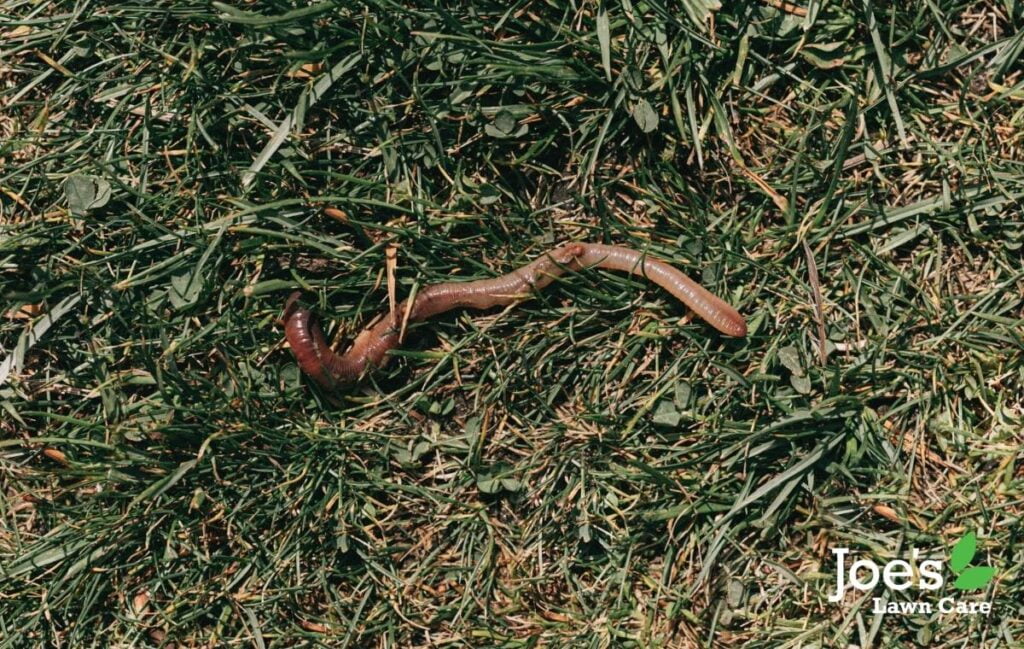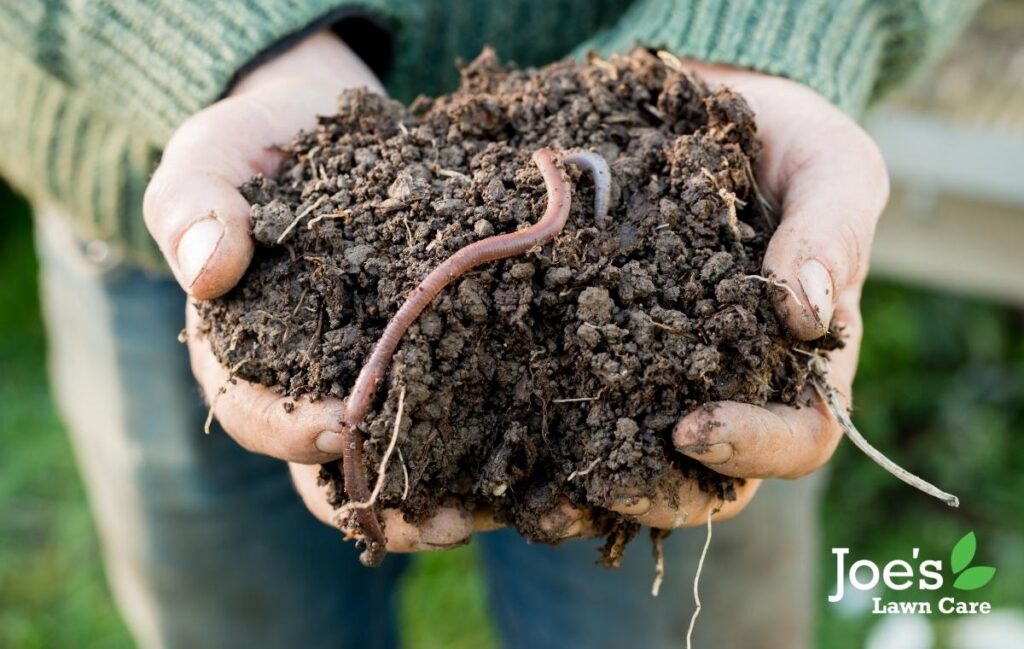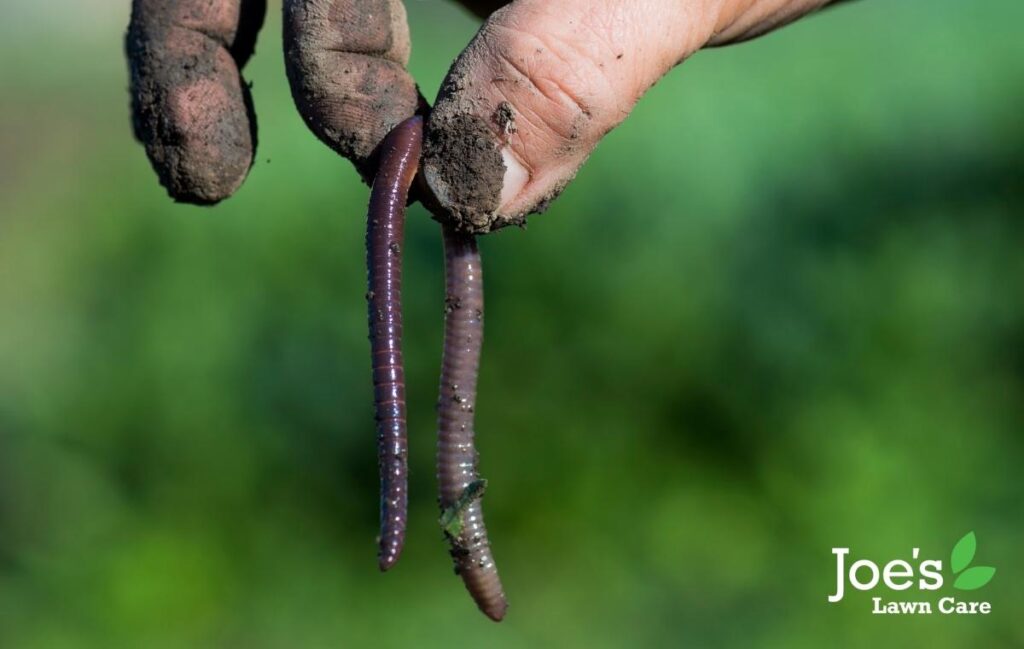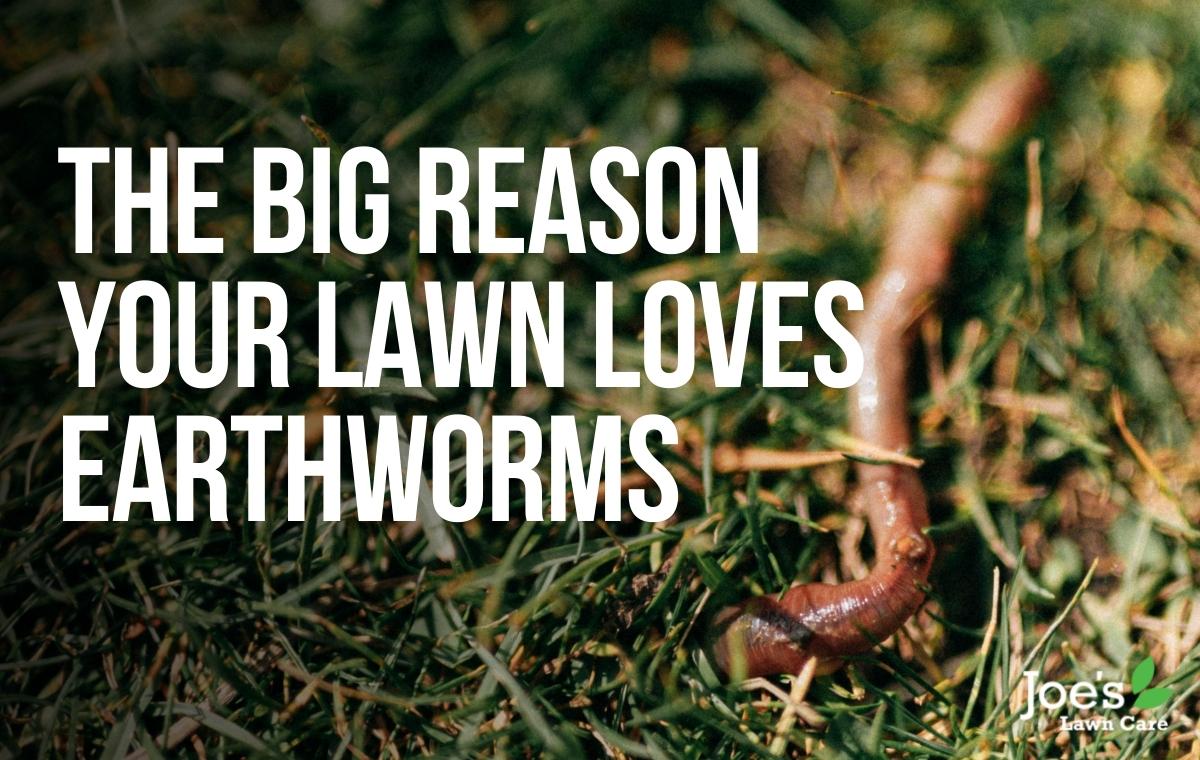The Big Reason Your Lawn Loves Earthworms
Whether you love broccoli or not, you know that funny-looking vegetable is packed full of goodness that your body needs, right?. Well, the same goes for earthworms. Not for you, but for your lawn. Love them or hate them, they are one of the most important components of healthy soil — and the presence of them in your lawn is a pretty good indicator that your lawn is loving life.
The reason for this is simple: those strange, slimy, legless, stumpy-spaghetti looking creatures we call earthworms are great at adding high-levels of organic material to your soil. Translation: instead of worrying about the presence of earthworms in your lawn, you should be way more concerned about a lawn that is worm-free because that is a surefire sign that your lawn doesn’t have enough organic material in it.
And in that spirit, here’s everything you need to know about earthworms: the invertebrates with benefits.

What do earthworms do?
For the most part, you don’t even realise there are earthworms in your lawn, wiggling around your grass roots and conditioning your soil. It’s only when the weather gets a little damp do they head to the surface. That’s when they leave their castings on your turf. This is usually during the spring and fall. “What exactly are worm castings?” I hear you thinking. Well, in short, those little mounds are basically worm poop — and it’s super-nutritious for your lawn. That’s because these mounds of nutritious excrement are made up of organic matter the worms have digested.
But that’s not the only benefit of earthworms because, as they work their way around your soil, they also help to break down your lawn thatch. By digesting it and turning it into nitrogen to be put back into your soil.
And last but not least, just the simple act of moving through the soil, leaving little tunnels behind them works as natural aeration. It allows more air, water and nutrients to get down to the roots where a healthy lawn is made. Basically, almost everything about an earthworm is geared toward making your lawn healthier.

What are the negatives of earthworms?
The most obvious answer is aesthetics. That’s all. It’s about keeping your perfectly manicured lawn void of any worm castings that may make it unsightly. If you really think about it, it isn’t really a problem at all when you think of the benefits an earthworm brings through those small mounds of excrement.
Of course, the weaker your grass, the thinner your lawn and the more obvious these castings will become. What’s more, the more and more castings dotted around your lawn, the bumpier the surface of your lawn will be. This is when you’re more likely to scalp your lawn while mowing, and maybe even trip over as you head to your end-of-the-garden shed.
But the real problem with earthworms is the way they can sometimes attract other pests, such as moles. It’s a problem because they love snacking on subterranean pests like worms, grubs and other small insects.

How to deal with worm castings?
When you weigh up the pros and cons, earthworms bring a lot of lawn care benefits with only a small amount of nuisance: their worm castings. That’s why we’d recommend just leaving them. That said, there are some easy and eco-friendly ways to deal with lawn castings that you can use:
Grab your rake: wait until the ground is dry and then either rake or sweep any castings off your lawn, which will actually spread this natural fertiliser across the rest of your grass while removing those lumps.
Water less often: when it’s wet, earthworms tend to migrate to the surface of the lawn. But when it’s dry, earthworms will head back down into the soil, beyond the first few inches of dry soil in search of moisture.
Mow high: the best way to keep those unsightly castings out of sight, is to raise the height of your mower deck so that the blades are able to hide them. This will also promote healthier blades and roots, win win.
Roll them out: if the ground gets too bumpy with castings, the most effective things you can do is roll them back into the soil, although this isn’t a long-term solution. Especially as it will cause soil compaction to occur.
Our conclusion:
Earthworms are lawn pests with serious benefits to both your soil and your turf. From acting as natural aerators to turning thatch into nitrogen to simply adding much-needed nutrients to your lawn. These little creatures offer a lot of goodness without many negatives whatsoever.
Thanks for reading ‘The Big Reason Your Lawn Loves Earthworms’. For more lawn care tips and tricks, follow us on Facebook and Instagram.





